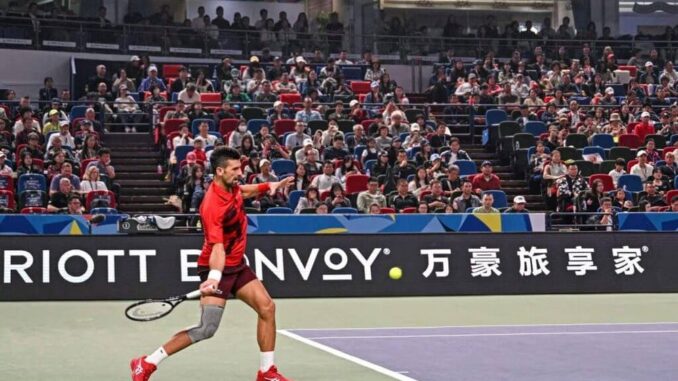
The cold war between tennis players and the sport’s integrity authority grew several degrees hotter this week, as the leading but nascent organizing body for tennis players directly questioned the methods by which tennis polices doping and corruption.
In a letter addressed to Karen Moorehouse, the chief executive of the International Tennis Integrity Agency (ITIA) and seen by The Athletic, Ahmad Nassar, the executive director of the Professional Tennis Players Association (PTPA), alleged that ITIA investigators have on occasion seized the personal mobile phones of players, harassed their families and threatened players with sanctions and suspensions unless they immediately do what is being demanded of them.
“The reports we have received demonstrate that the ITIA’s investigative process is broken, and that ITIA investigators are abusing their roles,” Nassar wrote.
“While we would hope that these incidents violate the ITIA’s investigative protocols, given the prevalence of complaints, we believe there are flaws at the core of how the ITIA conducts itself,” he added.
Nassar, who leads the PTPA alongside Djokovic, told The Athletic that more than 10 players have contacted the PTPA in recent months to allege aggressive treatment by ITIA investigators.
One player alleged that investigators demanded he turn over his phone and threatened to provisionally suspend him if he contacted a lawyer before doing so. Other players alleged that they were threatened with public disclosure of a provisional suspension without any clear, established grounds for a sanction. These players cannot be identified as doing so would reveal their being under ITIA investigation.
The PTPA did not disclose whether these allegations related to anti-doping offences or anti-corruption offences, and a footnote in Nassar’s letter characterized an investigator as “all individuals acting under the control of the ITIA.”
In a statement to The Athletic issued through Adrian Bassett, the chief spokesperson for the ITIA, the agency characterized the allegations as “serious, yet generic,” and said that it would investigate any specified allegations of improper behavior.
“It is currently our belief that ITIA investigators work according to the rules, with respect and reflecting our values,” it said.
The agency added that the procedures for issuing a provisional suspension are clearly described in its list of rules regarding anti-doping and anti-corruption, and said that it does not take lightly the decision to take a player’s mobile phone. “It must be necessary, proportionate and lawful. We will not request a device without full consideration of both the intelligence received, and the impact it will have on an individual.”
According to people involved in crafting the letter to the ITIA, who spoke on condition of anonymity to outline the process, the letter marked a change in the PTPA’s strategy in how it engages with the most powerful organizations in tennis.
Nassar copied law firm Weil, Gotshal and Manges, which has acted on behalf of the N.F.L. Players Association and the National Basketball Players Association, on the letter. The PTPA has now retained the firm to represent the organization and to explore potential litigation and other challenges to the governing bodies that have controlled tennis for the past half-century — the ATP and WTA Tours, and the four Grand Slam tournaments, all of which were copied on the letter. It has also hired James Quinn, a former Weil partner and sports antitrust attorney.
Be the first to comment